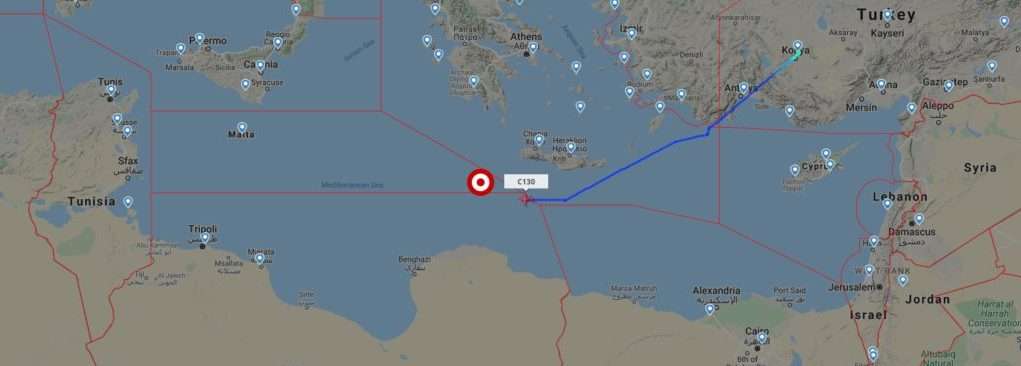Websites specialized in military affairs reported on Thursday that a number of Turkish military aircraft were monitored heading to the Libyan city of Misurata, in the latest step in Ankara's intervention in Libya, according to Sky News Arabia.
The Bulgarian Military Website revealed that three Turkish C-130 military transport planes took off from Istanbul towards Misurata Airport, east of the Libyan capital, Tripoli.
“These aircraft were carrying numbers of Syrian mercenaries, to support the militias of the Fayez al-Sarraj who heads the Government of National Accord,” the website reported.
https://twitter.com/ItaMilRadar/status/1275867572983025666
Earlier this week, the website reported, quoting unnamed sources, that Ankara intended to send 1,800 mercenaries to Libya.
The website pointed out that Ankara with these actions ignores international peace-keeping efforts in Libya, as well as a violation of the arms embargo to the country mired in chaos.
Turkish Military Cargos Approaching Misurata
In the meantime, the Italian military website, “Ita. Military Radar", tweeted that it monitored the return of two Turkish military planes of the same type to Istanbul from Misurata.

The military site attached the tweet to a map showing the route of the two planes, through the use of the GPS and satellites.
Early June, the "Flight Radar" website revealed that three Turkish military cargo planes and a ship with weapons were approaching from the airspace of western Libya.
The Italian website for monitoring air traffic said that two of them took off from Istanbul airport, and the third was from the Turkish military base of Konya.
Turkey has consistently pumped arms, ammunition, and mercenaries into Libya's militia, in contravention of international resolutions prohibiting the flow of arms into Libya.

Turkey is clearly seeking to achieve its strategic interests in Libya, which is to enable its allies from the ground and set foot on the Mediterranean coast to strengthen its position in the gas reserves dispute, so Ankara rejects a full ceasefire and the equitable distribution of power and resources in Libya.
Libya, once one of the most prosperous nations in Africa, remains fractured and devastated since the 2011 NATO bombing campaign that helped militant forces oust and kill long-time leader Muammar Gaddhafi.












